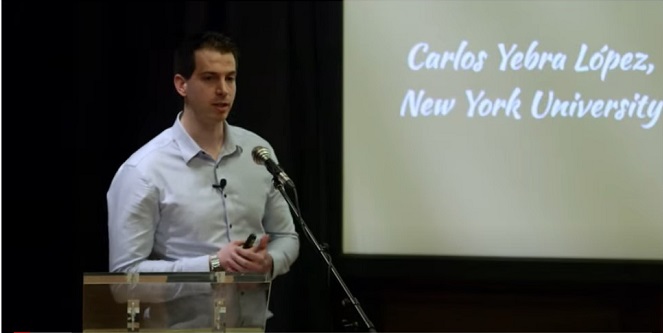Carlos Yebra López reflects on the revitalisation of Ladino made possible through online communities. This is discussed more fully in the video included below and was also the focus of a conference held at the IMLR in 2019
By virtue of their nature, diasporic languages often lack a unified geographical territory, which prevents their intergenerational transmission. However, in recent decades there has been a significant trend in the emergence of digital homelands (Held, 2010), ie, virtual communities where the diasporic language in question is used as the only means of communication between users.
According to Held, virtual communities are not just mere spaces for communication. Rather, they have the potential to become “a territory where a culture may be revitalised after having faced a state of severe decline”, which has also been referred to as a “kingdom of the word” (Shandler, 2004), or “a national language of nowhere” (idem).
This contemporary trend is crucial for the purpose of reversing language shift, as it fulfills the two key conditions envisaged by sociolinguist Joshua Fishman (1991) for the purpose of effectively countering language attrition: intergenerational transmission and diglossic, functional isolation.
In my presentation for The Language Event in Edinburgh earlier this year, I applied this theoretical background to the case of a minoritised and diasporic language by the name of Ladino, which has been classified by UNESCO as an endangered language. Ladino, also called Judeo-Spanish, Judezmo or Espanyolit, is the language spoken by Jewish people whose ancestors lived in the Iberian Peninsula until their expulsion at the end of the 15th century. Although Ladino was shaped in diaspora, mostly in the Eastern Mediterranean, it preserves a great deal from the linguistic varieties spoken in medieval Iberia, which helps explain its deceiving similarity with Castilian Spanish.
In particular, I discussed three case studies of Ladino-only online communities: the email list Ladinokomunita (1999-), the initiative Ladino Forever (Halphie, 2016-), and the digital archive Ladino 21 (Yebra, Acero, Aguado, 2017-).
Watch the talk online here:
Dr Carlos Yebra López, New York University

